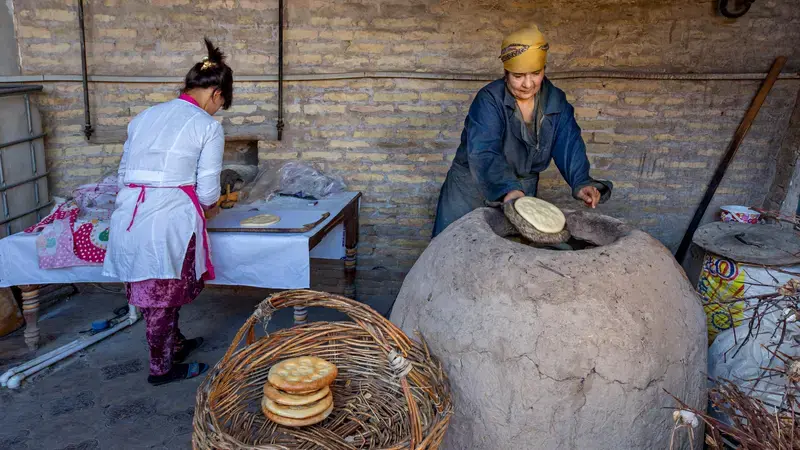Feminization and gender roles in agriculture in post-soviet Uzbekistan

After its independence from the Soviet Union in 1991, Uzbekistan underwent transformative socio-economic changes, which led men to seek work opportunities abroad. Meanwhile, the State continued to turn to agriculture, focusing on wheat and cotton, to provide a means to employ the population but with far less funding.
The study found that male outmigration 'feminized' agricultural labor and management, increasing women's work (often unpaid) by recasting their involvement in wheat production and processing, even while continuing their traditional roles in the household.
Further, while the government's interest in achieving wheat self-sufficiency meant less discrimination against women for access to inputs, its strategic focus on cotton and wheat and redirection of water towards these crops discriminated against women's aspiration to focus on cash crops (fruits and vegetables).
However, although the feminization of agriculture made women poorer mainly due to low wages in wheat processing, some women found themselves with more influence in new roles that challenged gender norms and were able to demand fairer treatment, highlighting the importance of their position as gender equality innovators at various levels.
Simultaneously, in migrant families where remittances were limited, mothers-in-law found themselves more dependent on their daughter-in-law and, as such, became more relaxed and supportive of their daughter-in-law's entrepreneurial efforts. This is a shift whereby mothers-in-law, important influencers in household decisions, were traditionally critical of their daughter-in-law carrying out business activities.
----
The study "Feminization, rural transformation, and wheat systems in post-soviet Uzbekistan" was published in the Journal of Rural Studies in Science Direct.
